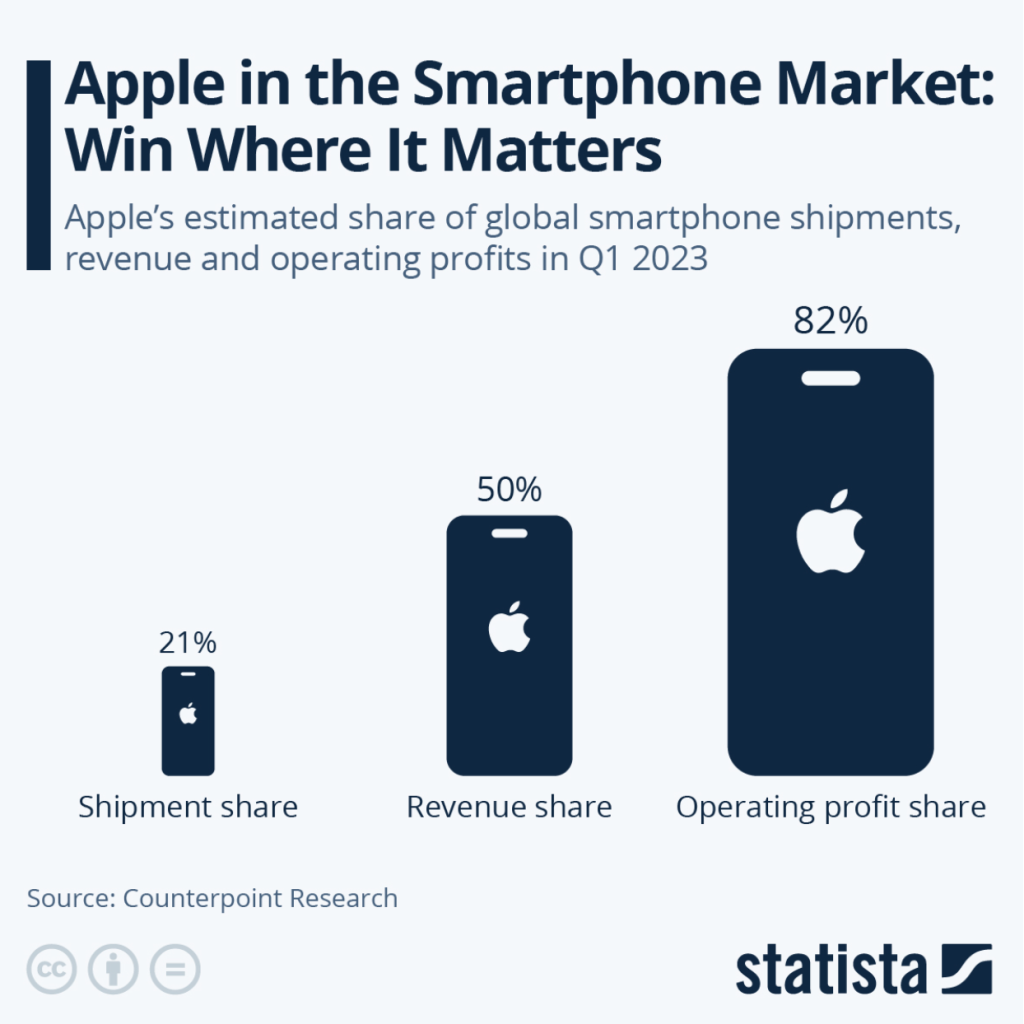By: Andreu Beltran
Apple: Right or Wrong? The Department of Justice Sues Apple for Monopolizing Smartphone Industry
Monopoly is not just a board game. In an increasingly digital world, businesses find increasingly creative ways to manipulate consumers and jeopardize competing businesses in order to maximize their profit. Apple is one example of a larger problem. The Department of Justice is currently suing Apple for taking advantage of consumers who rely on Apple for new technology by purposefully reducing the products’ battery life and overcharging its devices. The lawsuit is justified because Apple is abusing its power as an unregulated monopoly of the smartphone industry, forcing customers to pay more money than they should.
First, it is important to understand why our digital society is so reliant on the iPhone. Today, the prevalence of iPhone features such as Apple Pay and iMessage make it inconvenient to own a phone that isn’t from Apple. According to the Wall Street Journal, one survey reports that 85% of users of messaging apps rely on iMessage as their primary application over WhatsApp, Snapchat, or other messengers. Not owning an iPhone essentially means losing digital contact with friends and family through iMessage. Additionally, customers are reliant on iPhones because of how convenient it is to use Apple’s digital wallet. According to Apple, 85% of retailers in the U.S. have Apple Pay as a payment option. Apple Pay makes leaving the house more convenient for consumers, who now can use the same device to call their friends and make purchases. Because Apple Pay is one of the only competitive smart wallets available to smartphone users, consumers are unlikely to switch smartphones.
However, Apple leverages this monumental influence, turning its simple smartphone business into a lucrative monopoly, taking money from its consumers whom it knows will never and cannot abandon its ecosystem. Apple overcharges for iCloud, but consumers still pay for it regardless because without doing so they may lose all their memory if they damage their phone. Consumers have access to 5 GB of free storage with iCloud, which is only enough for 18 minutes of HD footage. Afterward, customers must pay $59.99 per month for a valuable enough storage plan for all their photos, videos, and applications. This is far above marginal costs, and customers must pay the price because without it they cannot backup their iPhone’s data in case of a malfunction. As such, iCloud’s subscription service is technically an unnecessary feature for Apple to have, but the company introduced it to manipulate consumers for more money. Clearly, iCloud is working in Apple’s favor, as according to Wedbush Securities, 20% of Apple’s Revenue comes just from iCloud subscriptions.
Additionally, Apple is being sued for taking advantage of consumers by intentionally making their older products obsolete to consumers, compelling them to purchase more expensive and new technology. For example, Apple intentionally reduces the battery life of its older products, a controversy known as ‘batterygate.’ Apple’s solution to offer replacement batteries at reduced prices does save consumers money, yet it still prevents consumers from keeping their old products and forces them to buy a new one each year regardless of whether they truly want the features of the newest iPhone. Additionally, old phones have no warranty, meaning Apple will not cover repairs or maintenance. When customers must buy new iPhones, Apple can unfairly release new products that do not innovate on the old because customers will buy them out of necessity rather than desire.Apple makes $170 billion in profit per year. If this court case turns in the Department of Justice’s favor, the world could see changes to Apple’s business practices and hopefully consumers will topple Apple’s unjust control over smartphones—more specifically, 40% of the industry. Apple’s manipulative methods prove that, although highly influential companies claim to look out for consumers, in reality, they are only looking out for new ways to make money.



